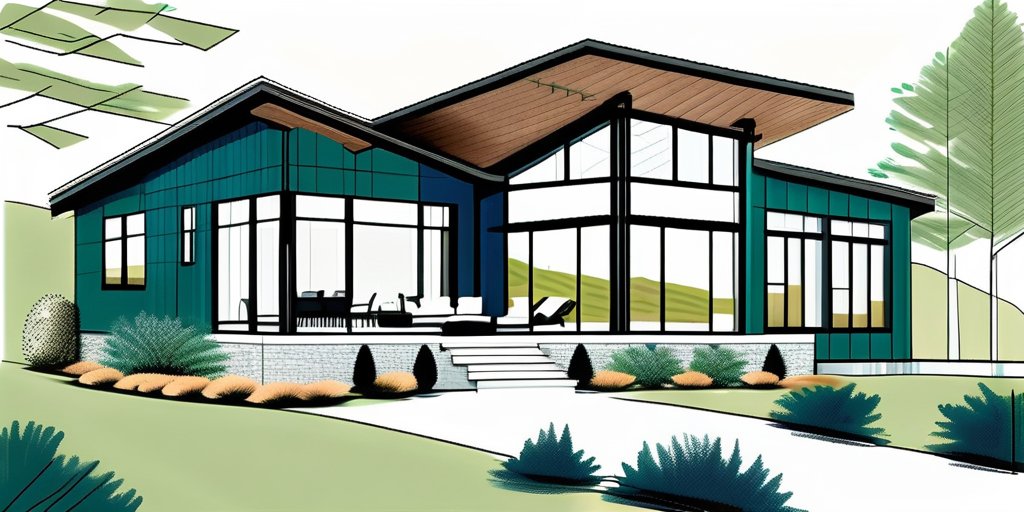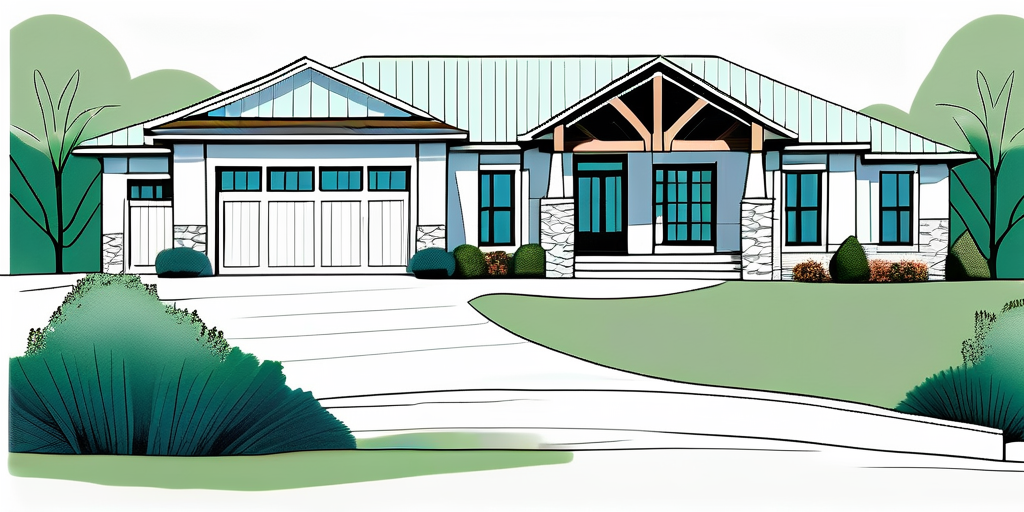
If you're dreaming about the perfect home nestled in the picturesque landscapes of Tennessee, you're not alone. Custom homes offer a blend of creativity and functionality, allowing homeowners to design a space that truly reflects their personality and lifestyle. In this article, we will explore everything you need to know about custom home building in Tennessee. Let’s dive in!
Before you jump into the dream of building your custom home, it’s important to grasp the basics. Custom home building is not just about bricks and mortar; it’s a comprehensive process that involves careful planning, design, and execution. Understanding this journey from start to finish can set you up for a successful project.
The design process is where your dreams start to take shape. First, think about the key elements you want in your home. Will it be open-concept, or do you prefer defined spaces? Is a gourmet kitchen essential? Begin sketching your ideas, considering both aesthetics and functionality.
Next, you may consider hiring an architect or a designer who understands your vision. They can help translate your ideas into workable plans, suggest improvements, and ensure your home adheres to local building codes. This phase can be time-consuming but is essential to avoid future headaches. Furthermore, engaging in this creative process allows you to explore various architectural styles, from modern minimalism to rustic charm, ensuring that the final design reflects your personal taste and lifestyle.
Once you have your vision laid out, it’s time to find the right builder. This choice can significantly impact the outcome of your project. Look for local builders with experience in custom homes and a strong portfolio. Reviews and referrals from past clients can also provide valuable insights.
Once you've narrowed down your options, meet with potential builders. Ask them about their design processes, timelines, and warranties. A good builder will be transparent and communicative, ensuring that you feel confident throughout the building journey. Additionally, consider discussing your budget openly; a reputable builder will work with you to find solutions that meet your financial parameters while still delivering on quality and craftsmanship. Remember, the relationship you build with your contractor can be just as important as the home itself, as collaboration and trust will be key throughout the construction process.
When it comes to custom homes in Tennessee, certain features are prevalent. Whether it's the stunning views, rich culture, or a deep connection to nature, local influences can play an essential role in your home’s design.

Tennessee boasts diverse architectural styles reflecting its rich history and culture. From charming Craftsman bungalows to elegant Southern plantations, you'll find a unique aesthetic that resonates with you. Think about integrating elements from these styles or creating a hybrid design that complements the natural beauty surrounding your home.
Modern farmhouse designs are also gaining popularity, combining rustic charm with contemporary features. Large porches, barn doors, and open floor plans make this style a warm and inviting choice for Tennessee living. Additionally, many homeowners are opting for energy-efficient designs that incorporate large windows to maximize natural light and provide breathtaking views of the rolling hills and lush landscapes that Tennessee is known for. This not only enhances the aesthetic appeal but also creates a seamless connection between indoor and outdoor spaces.
Utilizing local materials can enhance your home's charm while supporting sustainability. Tennessee offers beautiful natural resources like native stone, timber, and clay. By sourcing materials from the region, your home can harmonize with its environment and retain that authentic Southern appeal.
Moreover, local materials often mean lower transportation costs, which can be a plus for your budget. Make sure to discuss these options with your builder and architect, as they can help you find the best fits for your vision. Additionally, incorporating reclaimed wood from old barns or historical buildings not only adds character but also tells a story, connecting your new home to the rich tapestry of Tennessee's past. This thoughtful approach to material selection can elevate your custom home, making it a true reflection of the local culture and environment.
Building a custom home is a significant financial investment, and being informed about the costs involved will help you avoid nasty surprises down the line. Understanding your budget is foundational for a smooth journey from design to completion.

When budgeting, it’s crucial to consider not only construction costs but also design fees, permits, land acquisition, and landscaping. Start by estimating the amount you’re willing to spend and work from there. Having a detailed budget helps you prioritize features that matter most.
Don’t forget to set aside a contingency fund. Unexpected expenses can arise, and a cushion can save you from financial strain. As you make choices regarding materials and design elements, remember that quality often outweighs quantity.
Additionally, consider the long-term costs associated with homeownership. While the initial construction may take a significant chunk of your budget, ongoing expenses such as property taxes, insurance, and maintenance should also be factored in. Researching the average costs in your chosen area can provide a clearer picture of what to expect once your dream home is complete.
Pricing can vary based on numerous factors including location, size, complexity of design, and materials used. On average, you might expect to pay anywhere from $150 to $300 per square foot, but this can fluctuate considerably.
Once you have a solid grasp on your budget, consult with your builder to get more precise quotes. They may provide insights based on local trends and assist you in finding ways to bring your vision to life within your financial limits.
It’s also wise to explore different financing options available for custom home builds. Traditional mortgages, construction loans, and even state-specific grants or incentives can impact your overall budget. Understanding these options can help you make informed decisions about how to finance your dream home while keeping costs manageable. Engaging with a financial advisor familiar with the housing market in Tennessee can also provide tailored advice to navigate this complex landscape effectively.
As the global conversation shifts towards sustainability, more custom homes in Tennessee are incorporating eco-friendly practices. Not only does this contribute positively to the environment, but it can also drive down energy costs and increase property value. Homeowners are increasingly aware of their carbon footprint and are eager to invest in homes that reflect their commitment to a greener future. This trend not only enhances the livability of neighborhoods but also fosters a sense of community among like-minded individuals who prioritize sustainability.
Energy-efficient designs focus on reducing energy consumption while maximizing comfort. This can include features like south-facing windows for natural warmth, strategic shading to reduce heat during summer, and advanced insulation materials. Additionally, the integration of passive solar design principles can significantly enhance energy efficiency by harnessing sunlight for heating and cooling, thus reducing reliance on artificial heating and cooling systems.
Technologies such as smart thermostats and energy-efficient HVAC systems contribute to energy conservation. Investing in these options can lead to proactive savings, making your home not just comfortable but also green and cost-effective. Furthermore, the use of renewable energy sources, such as solar panels, can provide homeowners with energy independence and even the potential to sell excess energy back to the grid, creating an additional revenue stream.
Considering eco-friendly materials is equally essential in modern custom homes. Bamboo flooring, recycled metal roofing, and low-VOC paints are just a few options that can minimize your environmental impact. These materials not only help reduce waste but also often offer superior durability and aesthetic appeal, making them a wise choice for homeowners looking to blend style with sustainability.
Using locally sourced materials further reduces your ecological footprint while enhancing the unique character of your home. When discussing options with your builder, ask about sustainable practices and certifications to ensure you’re making informed choices for the planet. Additionally, incorporating reclaimed wood or salvaged materials can add a distinct charm to your home while promoting the concept of reusing resources. This not only supports local artisans and businesses but also tells a story that resonates with the history and culture of the area, making your custom home truly one-of-a-kind.
Your custom home is a reflection of your personality and lifestyle, so it’s essential to personalize every aspect. From interior design to outdoor spaces, every detail can be tailored to your taste and needs.

Start with the interior design by selecting colors, styles, and layouts that resonate with you. Think about how each room will be used. A cozy living room might call for soft colors and comfortable furniture, while a vibrant home office could use energizing hues.
Don’t hesitate to express your creativity—whether through wallpaper, art, or unique fixtures. Collaborating with an interior designer can help bring your vision to life while ensuring functional and aesthetic harmony throughout your home. Remember to consider the flow of your space; open floor plans can enhance connectivity between rooms, making your home feel more expansive and inviting.
Incorporating personal touches, such as family heirlooms or custom-made furniture, can infuse your home with character and warmth. Lighting is another crucial element—select fixtures that not only illuminate but also serve as statement pieces. From chandeliers to pendant lights, the right lighting can transform a room, setting the mood and enhancing the overall design.
Outdoor spaces are just as important as indoor ones. Consider patios, decks, and gardens that allow you to enjoy Tennessee's beautiful climate. An outdoor kitchen or a fire pit can create inviting spaces for gatherings and celebrations.
Think about landscaping that fits your style—native plants require less maintenance and attract local wildlife, enhancing your home’s connectivity to nature. Whether you want a lush garden or a simple lawn, your outdoor areas should reflect your preferences and enhance your overall living experience. Incorporating elements like water features or stone pathways can add tranquility and charm to your yard, creating a serene retreat right at home.
Additionally, consider how your outdoor spaces can extend your living area. A well-designed patio with comfortable seating can serve as an outdoor living room, perfect for entertaining guests or enjoying quiet evenings under the stars. Adding features like pergolas or shade sails can provide comfort during the warmer months, allowing you to enjoy your outdoor oasis year-round.
In conclusion, building a custom home in Tennessee is an exciting endeavor filled with possibilities. By understanding the basics, key features, costs, sustainability practices, and the importance of personalization, you can embark on this journey with confidence. Your dream home is within reach, and with the right planning and creativity, it's sure to be a reflection of your unique lifestyle. Happy building!